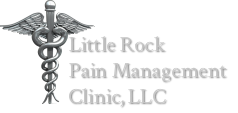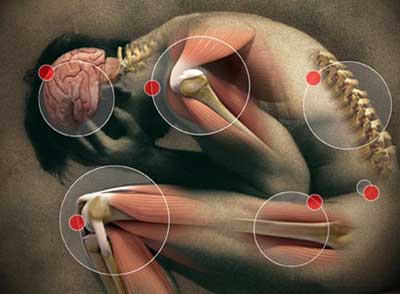Pain Management Patient Requirements
|
Contact our scheduling specialists at 501-372-7246 between 8:30 a.m.-4:30 p.m. Monday through Thursday. If we are unavailable leave a message and we will return your call. You may have your providers send your records or we can email a medical record release to you so that we may obtain your records. Records may be faxed to 501-324-1518 or emailed to info@arkansaspainmanagement.com.
Required Information
|
Little Rock Pain Management QuestionsQ: Do you accept my insurance?
A: We decided along time ago that we wanted to emphasize quality and not quantity. The number one complaint we heard from chronic pain patients was that the doctor did not listen to them or was dismissive and desensitized to their needs. We feel this is due to the need to see so many patients due to low insurance reimbursements which results in less time with the patient. We emphasize compassion and more time with the patient. We are a private pay practice and do not accept insurance however if you have commercial insurance they will usually reimburse you if you file on your own however Medicare and Medicaid will not reimburse you. The cost of your 1st visit is $200 which must be prepaid upon approval of your admittance into our program and each additional visit is $100. Drug testing is also required to ensure compliance with our pain management agreement and the company testing you will bill your insurance for this service. Q: I have chronic pain and have a consultation with one of your physicians next week. What kinds of testing could the doctor request to help diagnosis my pain condition? A: During your initial consultation the doctor will examine you and talk about the chronic pain you are experiencing. Depending on your condition and history, the doctor may request you to undergo one of the following procedures to better diagnosis the cause of your pain: · Magnetic Resonance Imaging (MRI) - Similar to the CT scan, this diagnostic imaging test can show the physician detailed and clear images used to diagnose and identify numerous pain causing conditions. This technique can be done lying down or standing, "open" or "closed". · Computerized Tomography (CT) Scan - A special machine is use to scan the problem area and generate images. These images may expose problems such as herniated disks and other problems related to your bones, cartilage, ligaments, muscles, and tendons. · X-Ray - This is the oldest form of medical imaging. Pictures are taken of the inside of your body to diagnosis spinal defects, degenerative conditions, and injuries. · Bone Scan - A radioactive substance is injected into your vein to detect bone tumors, osteoporosis, or other compression fractures. · Electro Diagnostic Studies - This test looks at your nerve conduction pathways by measuring how long it takes for an electrical charge to travel from a needle in your spine to a needle in your leg. It can show nerve compression caused by a herniated disk or spinal stenosis. · Myelography - Used during x-rays, this test requires a special dye to be injected into your spinal canal. Herniated disks or other lesions show up on x-rays due to the dye. Most tests are quick, easy and relatively painless. If you have RECENT TESTING REPORTS to bring to your initial consultation, your doctor may not require you to have new testing done. If testing is necessary, ask the staff at your pain center for the location of a testing facility near you. Q: What causes chronic back pain? A: There are a number of factors and conditions that can cause chronic back pain. As a matter of fact, back pain ranks second only to headaches as the most frequent location of pain, especially the lower back area. Some of the more common causes of back pain are: · Herniated Disk - This condition is not unusual and is caused when normal wear and tear of the back causes a disk to rupture. Bulging of the disks is common and can become quite painful when the bulging is excessive or disk fragments place pressure on nearby nerves. Exceptional strain to the back can also cause disks to rupture. · Muscle Strains - This pain along your spine can be caused by inflamed joints, strained muscles, joints, or ligaments. · Osteoarthritis - This is a degenerative joint condition that causes deterioration of the cartilage that covers your vertebrae. Brought about mainly by aging, this condition can also start from an injury and overloading. · Sciatica - Inflammation or nerve compression in your lower back due to the condition can cause leg pain. · Osteoporosis - This condition causes bones to become brittle and weak, resulting in painful compression fractures in the vertebrae. · Spasms - Muscles respond to and isolate pain during an injury to prevent further damage. There are many other factors that can contribute to your back pain such as poor muscle tone, excess weight, improper lifting, poor sitting and standing posture, or staying in one position for long periods of time, to name a few. Discuss any of these factors that apply to you during your pain management consultation. Be sure to share with the physician any changes in your life style or pain condition during your follow-up appointments. Q: I have been prescribed medication for my chronic pain. Should I take the medication only when the pain is unbearable? A: No! It is always important to follow the directions just as the doctor has prescribed and take your medication regularly, even around the clock. You should not wait until the pain becomes severe to take your medication, as pain is easier to control when it is mild. It is difficult for you and your doctor to assess the effectiveness of your medication if it is not taken properly. If you find that your medication is not adequately alleviating your pain or you are experiencing unusual side effects, contact your pain center immediately.Your doctor can evaluate the situation and reassess your treatment plan though an appointment called a "Medication Adjustment". You are required to bring all medications prescribed to you by the pain center to any Medication Adjustment appointment. |
Chronic Pain LinksThe American Chronic Pain Association (ACPA)- Offering support and information for people with chronic pain
WebMd Pain Management Center - Chronic pain affects an estimated 86 million American adults to some degree. Here you'll find the latest information on chronic pain treatments, as well as natural ways to manage your chronic pain. |

